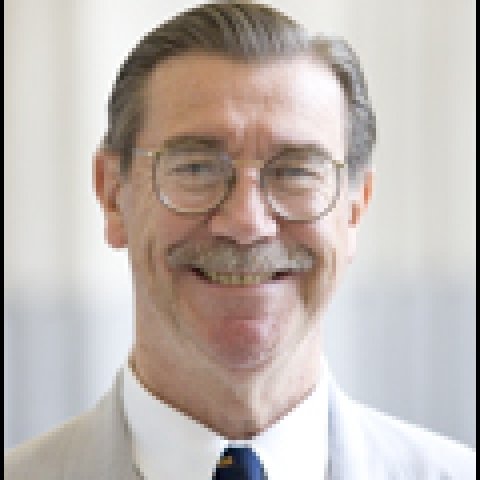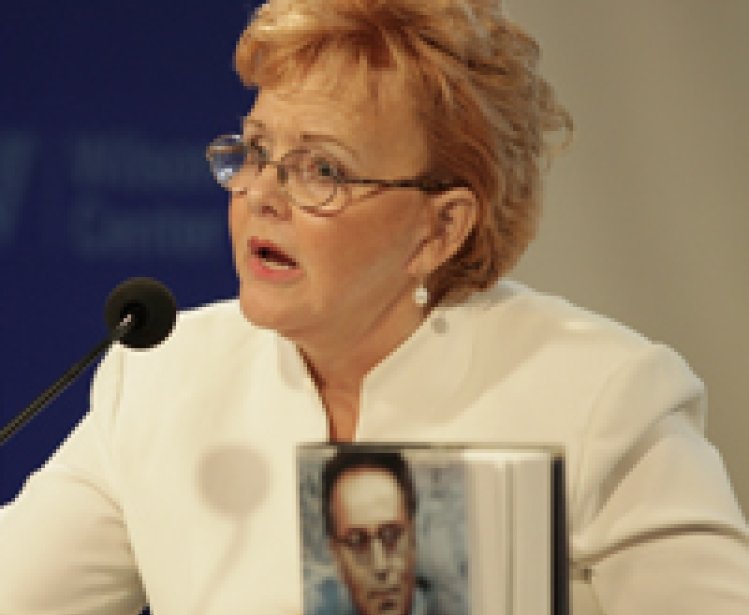John Gordon Garrard
Professional affiliation
Wilson Center Projects
"From Party to Patriarch: Russian Orthodoxy Resurgent"
Full Biography
As a young private in the Royal Inniskilling Fusiliers, I was posted to Northern Ireland, an experience that left me with a lifelong commitment to religious tolerance. While queuing for injections to be posted to the Suez Canal, I was instead seconded to British Intelligence as an officer-cadet and sent to Cambridge to learn Russian in a then secret operation run by the Joint Services School for Linguists. I mustered out as an Interpreter, and took up the place that had been held for me for two years at Oxford University.How had a Cockney boy rocketed from the working class to "Oxbridge"? The British Education Act of 1944 gave me my chance. Having survived the Blitz, the V-1 and V-2 rockets (my baby sister did not), as well as evacuations to a dozen different schools, I passed the '11-plus' exam and was admitted to an elite grammar school. The classical education I received there (including Latin) prepared me to win a State Scholarship to Oxford. A single law meant I was the first person in my family not forced to quit school at 14 and go to work.After graduating from Oxford (Merton) in 1958 with a B.A. in Persian and Turkish Studies, I emigrated to Canada. I created a Russian studies program at Carleton University in Ottawa, then left to earn a Ph.D. and a graduate certificate in Soviet Studies at Columbia University on a generous fellowship. I have lived and worked in the United States ever since, becoming a citizen on July 4, 1977 at Monticello. Plans to become a citizen during the Bicentennial derailed when the Immigration Service misfiled my application.For my first twenty years as a professor I concentrated on Russian literature in European perspective, directing NEH Summer Seminars for College Teachers and creating the Center for Russian and East European Studies at the University of Virginia. Then, in 1988, I was asked by a Moscow friend to write a biography of a Soviet Jewish writer, Vasily Grossman, who had been virtually "erased" by the CPSU censorship. I agreed that, as soon as Inside the Soviet Writers Union was published, I would.In 1991 the collapse of the Soviet Union opened up vast new areas of research, as formerly sealed archives were now accessible. I was thus able to work in archives dealing with the Holocaust in Nazi-occupied Soviet territory. The NKVD had captured many important German documents as well during the Red Army's advance to Berlin. Soviet archives were the basis of my research for The Bones of Berdichev: the Life and Fate of Vasily Grossman (1996). Berdichev was the site of one of the first mass murders of Jews during World War II. Among the 20,000 victims was Grossman's own mother.Though I worked on Berdichev for nearly eight years, I was only able to recover about 1,000 names of victims. However, I discovered in the Belarus archives that the Germans themselves had recorded the names and biographical details of nearly 12,500 Jews forced into the Brest ghetto. I organized the digitization of these files into a searchable database, the Brest Ghetto Passport Archive. The website is hosted by the Jewish Genealogical Society.After my research was featured in a Swiss documentary, Fading Traces: Postscripts from European Memory, I switched to a new focus: Russia's emergence from the carapace of the Soviet shell. Even while working on the Holocaust in the Occupied Soviet Union, I had become involved in organizing medical missions of mercy for an Orthodox Church and school in Moscow. I retain a unique memory of landing at Sheremetevo Airport and shepherding 20 enormous crates of medical supplies through customs to the waiting room. There two groups waited: one headed by an Orthodox priest and his deacons; the other consisting of young Jewish men in keppas, the first Hillel of Moscow University. Each little delegation had withdrawn to its own area. An unspoken question hung in the air over the huddled and puzzled heads: "Can they be waiting for the same person we are?" It was a window into the divisions that are bubbling beneath the surface of the "new" Russia.During the years I worked on the Holocaust, I would be continually asked if I were Jewish. Now I am asked if I am Russian Orthodox. I long ago ceased to be surprised at the question. My current project, on the resurgence of the Russian Orthodox Church, has brought me full circle to the same issue I faced over 50 years ago patrolling "Sniper Alley" in Northern Ireland: the critical need on this planet for religious tolerance.
Education
B.A. (1958) Oxford University; M.A. (1963) Columbia University; Graduate Certificate (1964) Harriman Institute of Columbia University; Ph.D. (1966) Columbia University
Subjects
Russia
Experience
- Professor of Russian Studies at the University of Arizona since 1984, having taught previously at Dartmouth College, Indiana University, and the University of Virginia, where I was Director of the Center for Russian and East European Studies
- Woodrow Wilson Fellow, Kennan Institute, 1984-85
- Visiting Research Fellow at Columbia University, the Hoover Institution, Oxford University, the Centre for Hebrew and Jewish Studies (Oxford), the Rockefeller Foundation's Bellagio Study and Conference Center (Italy), and the Russian (former Soviet) Academy of Sciences (Moscow, St. Petersburg, Minsk, Kiev)
Expertise
Church-state relations in Russia; religious symbolism in Russian literature and culture; World War II on the Eastern Front; the Holocaust in Nazi-occupied Soviet territory
Major Publications
- The Bones of Berdichev: The Life and Fate of Vasily Grossman, with Dr. Carol Garrard (Simon & Schuster: NY, 1996)
- "Russia and the Soviet Union," The Holocaust Encyclopedia, ed. Walter Laqueur (Yale University Press, 2001)
- "The Twelve: Blok's Apocalypse," Religion and Literature, Spring 2003
Previous Terms
May 01, 1995 - Jun 01, 1995: "Documenting the Holocaust before Auschwitz" Sep 01, 1984 - Jun 01, 1985: "The Inner Face of Soviet Russian Literature"


